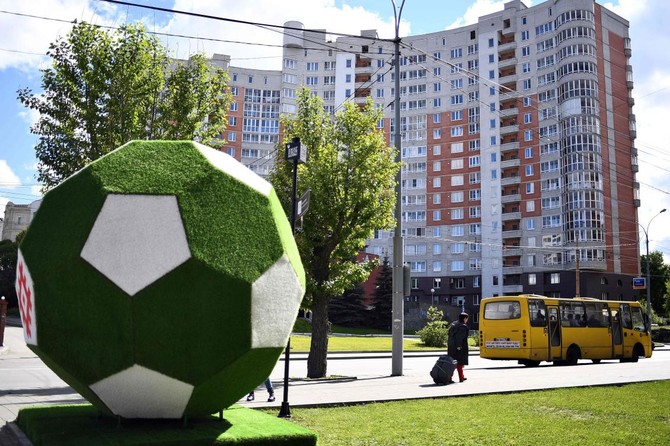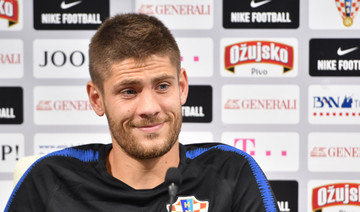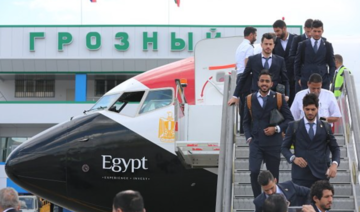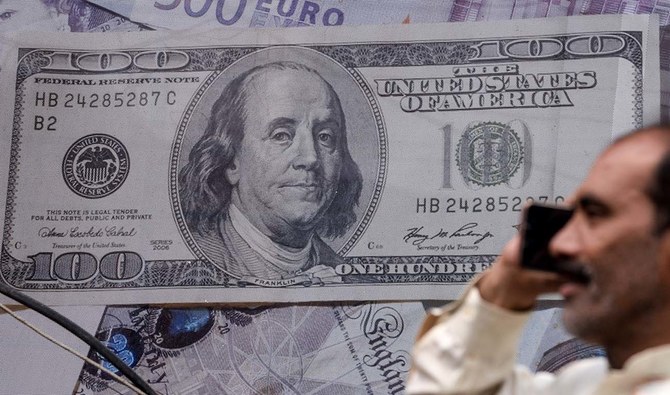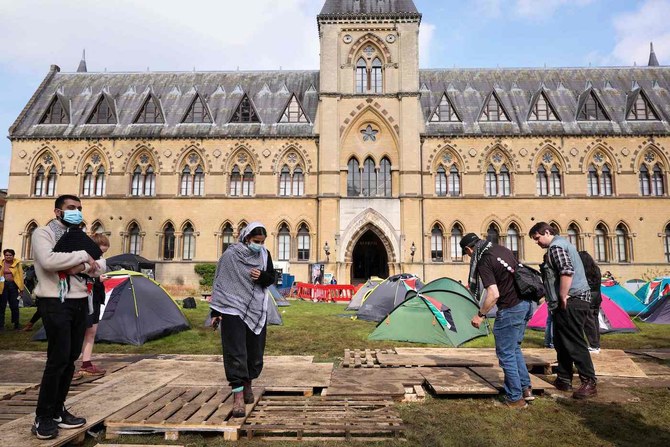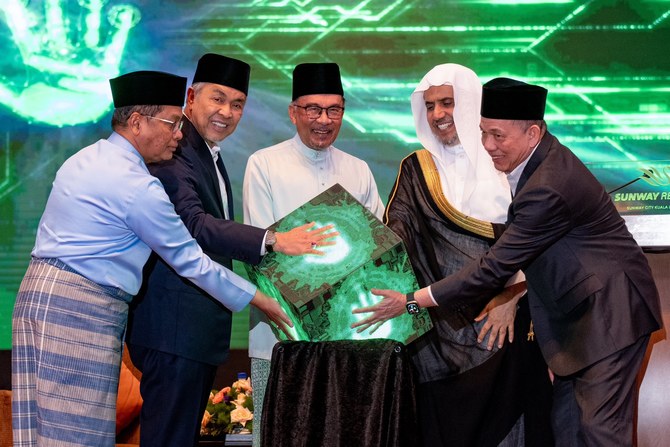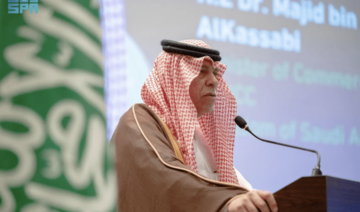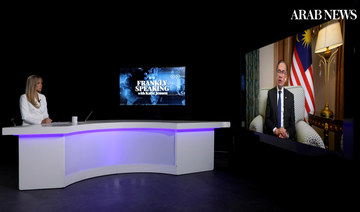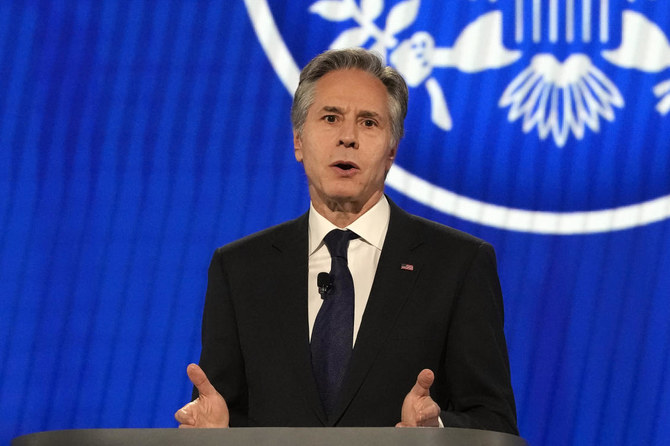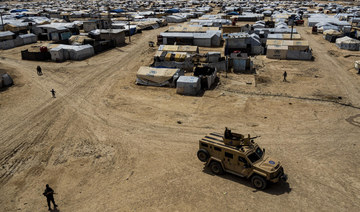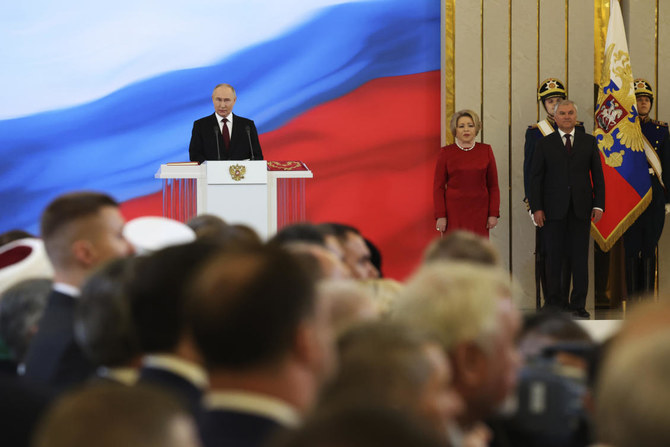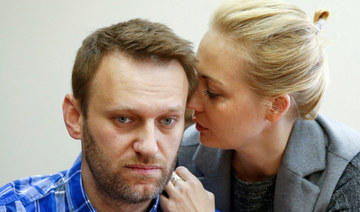MOSCOW: Russia has deployed air defense systems and stringent fan background checks in a sweeping security operation to counter the twin threats of terror attacks and hooliganism at the World Cup.
The country was already intensely policed when it was controversially awarded the right to host the event in 2010 but the clampdown that followed saw hardened hooligans seek cover and business barons wind down the operations of factories that process hazardous materials for fear they might be attacked.
Fans traveling to Russia are required to register with the police on their arrival in one of the 12 host cities and even riverboat traffic is being curtailed to make it easier for the authorities to keep track of everything that moves.
At least 30,000 security personnel will fan out across Moscow by the time the hosts kick off against Saudi Arabia at the Luzhniki Stadium on Thursday.
Squadrons of fighter jets will be on standby near the capital and air defenses will be on the alert for suspicious aircraft.
“After long years of preparations we have created a clear security plan,” said FSB domestic security service deputy chief Alexei Lavrishchev. “We are ready to avert and overcome any security threat.”
The 64 matches beamed around the globe will give President Vladimir Putin the chance to project Russia as a modern state that has regained the superpower status of its Soviet past.
But Putin is not the only one trying to take advantage of the unrivalled platform of a World Cup.
Security experts noticed Daesh threatening to make its presence felt in Russia.
The extremists group propaganda arm began posting social media pictures at the end of last year showing superstars such as Lionel Messi and Neymar dressed in the orange suits used for videotaped executions.
Analysts said the sheer size of the World Cup would have made it a target even if Russia had not launched a bombing campaign in support of Syrian President Bashar Assad in September 2015.
But Russia’s role in fighting Dasesh and other militant groups in Chechnya and other parts of the mostly Muslim north Caucasus has made it a prime target.
In the months leading up to the tournament, Russian state TV regularly broadcast images of combat operations against purported militants that end either with suspects lying in pools of blood or mouthing confessions.
Russia has also witnessed a spate of suicide bombings claimed by extremists that has killed dozens on public transport over the past eight years.
“There have been numerous successful terror attacks or thwarted plots in Russia by terrorists linked to or inspired by Daesh” the US Military Academy at West Point wrote in a report prepared by its anti-terrorism center last month.
“This suggests the group may have the capacity to launch attacks in Russia during the World Cup.”
Hooliganism was a brutally violent but largely overlooked problem in Russia until 150 of the team’s supporters, most of them shaven-headed and muscle-bound, pounced on the English in the French port of Marseille during Euro 2016.
The bloody scenes that followed shocked Europe and saw the Russian fans proclaim themselves kings of the football underworld.
“It was like winning against Brazil in football,” a fan who took part named Andrei told AFP.
“It was our last chance to show ourselves before the World Cup because we knew Putin would crack down hard to make sure nothing like that happens in Russia.”
Andrei and dozens of others who battled the English have since either spent time in Russian prisons or been forced to sign police promises not to cause any trouble in the weeks to come.
Few expect Russian thugs to risk embarrassing Putin with the world watching.
Meanwhile, a huge police operation is underway to secure the world cup in Russia. Police officers from 33 countries have gathered in Russia for the World Cup to help Moscow deal with potential hooliganism, terrorism and any backlash against local laws restricting LGBT rights.
The police representatives from all 32 competing countries plus 2022 host Qatar will gather in a police academy on the edge of the forest outside Moscow to share intelligence and spot troublemakers in World Cup crowds.
At the center, opened Tuesday by Russian Interior Minister Vladimir Kolokoltsev, members of various police forces will monitor games and crowds to ensure safety for before, during and after the matches.
“Our task is to respond quickly, correctly and according to the law” when trouble occurs,” Kolokoltsev said.
Organizers have also tried to keep out undesirable elements by introducing fan ID cards that everyone must acquire along with a ticket.
Russian police conduct background checks with the help of their foreign counterparts and weed out potential troublemakers.
Nearly 500 people have already been denied entry.
Yet little can keep patriotically minded groups of boozed-up fans from getting into fights with each other or the locals that could get out of control.


